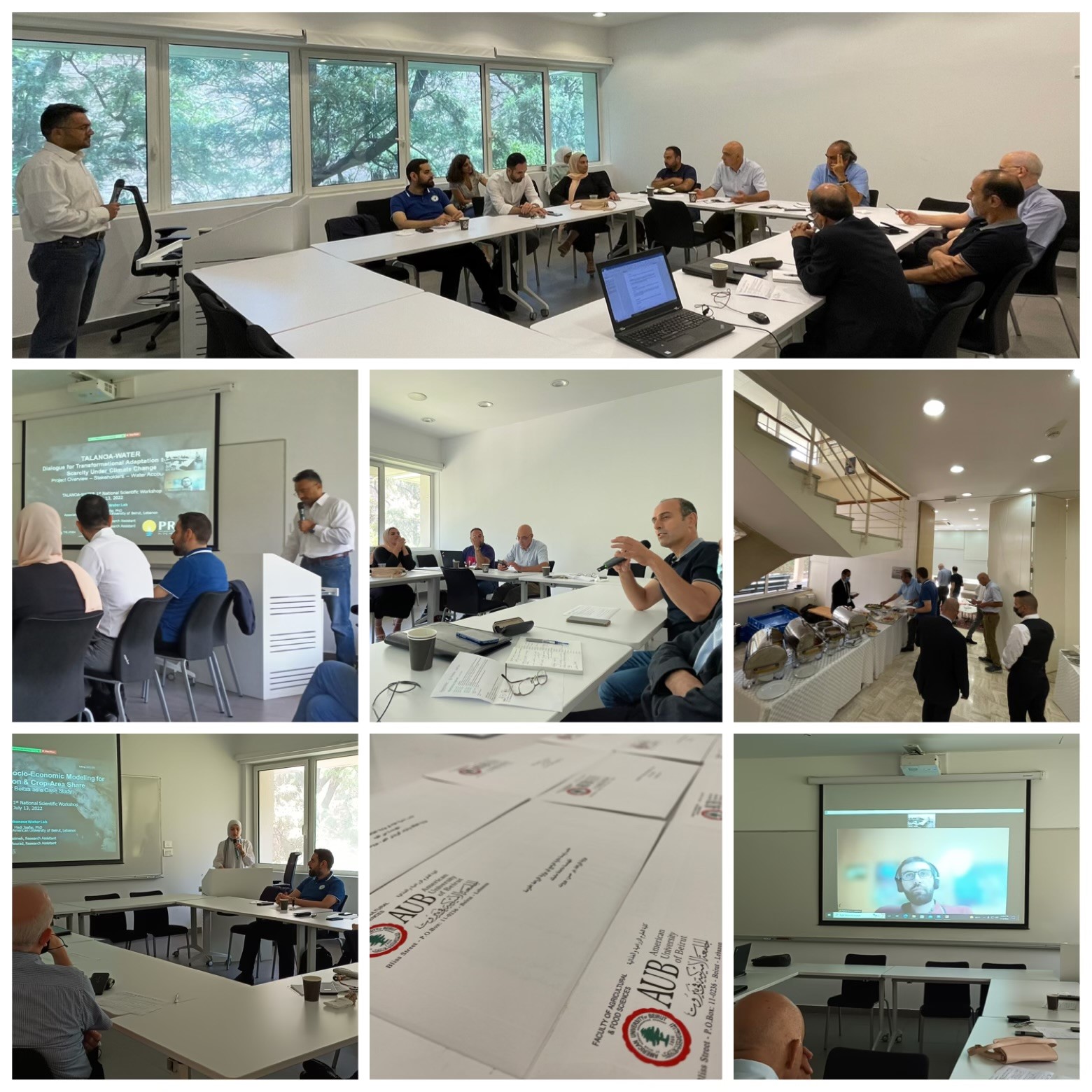AgHive at the Department of Agriculture organized the First National Stakeholders Workshop under the TALANOA-WATER Project
Stakeholder Dialogue for Transformational Adaptation to Water Scarcity Under Climate Change
The workshop’s main objective is to develop and evaluate the implementation of adaptive policies for water allocation based on the economic value of crops and water policies through the stakeholders’ dialogue.
AgHive, at the Department of Agriculture chaired by Dr. Hadi Jaafar, was honoured to organize the First National Stakeholder Workshop under the TALANOA-WATER project on July 13, 2022, in collaboration with the University of Salamanca (USAL), Spain. The workshop encompassed presenting results of the economic water productivity and water accounting in the Litani River Basin based on remote sensing and mathematical modeling.
This 4-year project, coordinated by the University of Salamanca, Spain, brings together an international scientific consortium of 7 partners from 6 countries: Lebanon, Tunisia, Egypt, Italy, France, and Spain. TALANOA-WATER is funded by Horizon 2020 European Union Funding for Research & lnnovation, and Partnership for Research and Innovation in the Mediterranean Area (PRIMA Foundation).

The workshop was very interactive in nature and involved 11 impactful stakeholders and policymakers holding senior positions in the public and private sectors, as well as in international organizations. The stakeholders are representatives of the Litani River Authority (LRA), Ministry of Agriculture, Lebanese Agricultural Research Institute (LARI), Bekaa Water Establishment, South Lebanon Water Establishment, International Center for Agricultural Research in the Dry Areas (ICARDA), FAO, WFP, UNESCWA, and the American University of Beirut (AUB).
The workshop was comprised of a series of presentations by the organizers briefing the attendants about the Department of Agriculture, AgHive, and an overview of the project, the role of stakeholders in shaping water and agricultural policies, preliminary results of Water Accounting Plus (WA+) and of remote sensing and socio-economic simulations. The workshop also included a welcoming note and presentation by the project rapporteur Mr. Nassim Abou Hamad, representative of the Litani River Authority. Dr. Francesco Sapino from USAL enriched the workshop with his presentation on mathematical programming models for robust decision making in the agricultural sector.

The workshop incorporated formal and informal discussions, with direct feedback from the stakeholders by sharing local knowledge, identifying gaps, and informing water policies. Opportunities of collaborations between stakeholders also arose during the workshop. The workshop was followed by lunch over which informal stakeholder dialogues continued.

